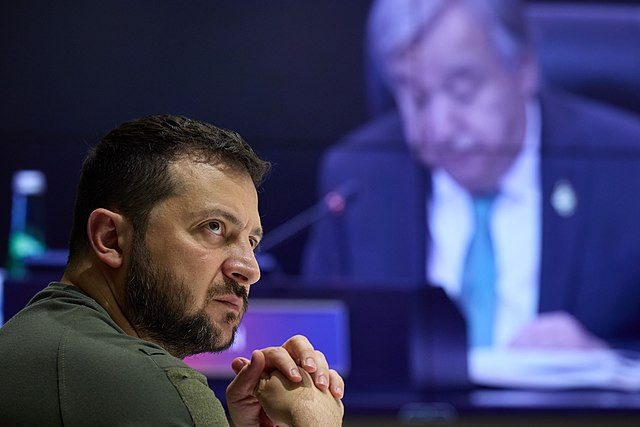Ukraine launched its largest drone attack to date on the Moscow region early Tuesday, resulting in the death of at least one woman, the destruction of dozens of homes, and the diversion of nearly 50 flights from Moscow's airports. This unprecedented assault marks a new phase in the war, as Kyiv increasingly takes the battle deep into Russian territory.
According to Russian authorities, the attack involved over 20 Ukrainian drones targeting the Moscow region, home to more than 21 million people. The Russian defense ministry reported the destruction of these drones, as well as an additional 124 drones that targeted eight other regions. The attack led to the closure of three of Moscow's four airports for more than six hours, severely disrupting air traffic.
The most significant damage occurred in the Ramenskoye district, located approximately 50 kilometers southeast of the Kremlin. A 46-year-old woman was killed, and three others were injured when drones struck high-rise apartment buildings, setting some on fire. Residents described waking up to the sounds of explosions and seeing their homes engulfed in flames.
"I looked at the window and saw a ball of fire," said Alexander Li, a resident of the district. "The window got blown out by the shockwave." Another resident, Georgy, recounted the terrifying moment when a drone hit his building. "I drew back the curtain and it hit the building right before my eyes," he said. "I took my family and we ran outside."
The Ramenskoye district, with a population of around a quarter-million people, bore the brunt of the attack. However, the Russian defense ministry also reported downing more than 70 drones over the Bryansk region and dozens more across other parts of the country. Fortunately, no casualties were reported in these other regions.
The drone war between Ukraine and Russia has intensified, with both sides utilizing drones not only for reconnaissance but increasingly as offensive weapons. Both nations have adapted commercial drones for military purposes, turning them into lethal devices capable of targeting infrastructure, military installations, and civilian areas. This development has made the conflict more unpredictable and dangerous.
Russian President Vladimir Putin has condemned the Ukrainian drone strikes as acts of terrorism, especially as they increasingly target civilian infrastructure. Moscow has largely been shielded from the war's direct impact until now, with most of the conflict confined to the front lines in southern and eastern Ukraine. However, the recent drone attacks signal a shift, bringing the war closer to Russia's heartland.
Putin vowed a strong response to what he described as a terror campaign against Russian civilians. "The Kyiv regime continues to demonstrate its nature," Kremlin spokesman Dmitry Peskov said, reinforcing Moscow's narrative that Ukraine's leadership poses a direct threat to Russian security. Peskov emphasized the need for Russia's ongoing military operations to protect against such actions.
Ukraine has justified its strikes deep into Russian territory as a legitimate response to the thousands of missiles and drones Russia has launched at Ukrainian cities since the invasion began in February 2022. Kyiv has argued that it has the right to defend itself and retaliate against Russian aggression, although it has not officially commented on the specifics of Tuesday's attack.
The international community, particularly Ukraine's Western allies, has expressed concern about the escalation of the conflict but has stopped short of endorsing direct attacks within Russian territory. Western nations have consistently sought to avoid a broader confrontation between Russia and NATO, while continuing to support Ukraine's right to self-defense.
Tuesday's drone attack follows a series of similar strikes in early September, primarily targeting Russia's energy and power infrastructure. These attacks have highlighted Ukraine's growing capability to strike far from the front lines, challenging Russia's ability to protect its vast territory.





